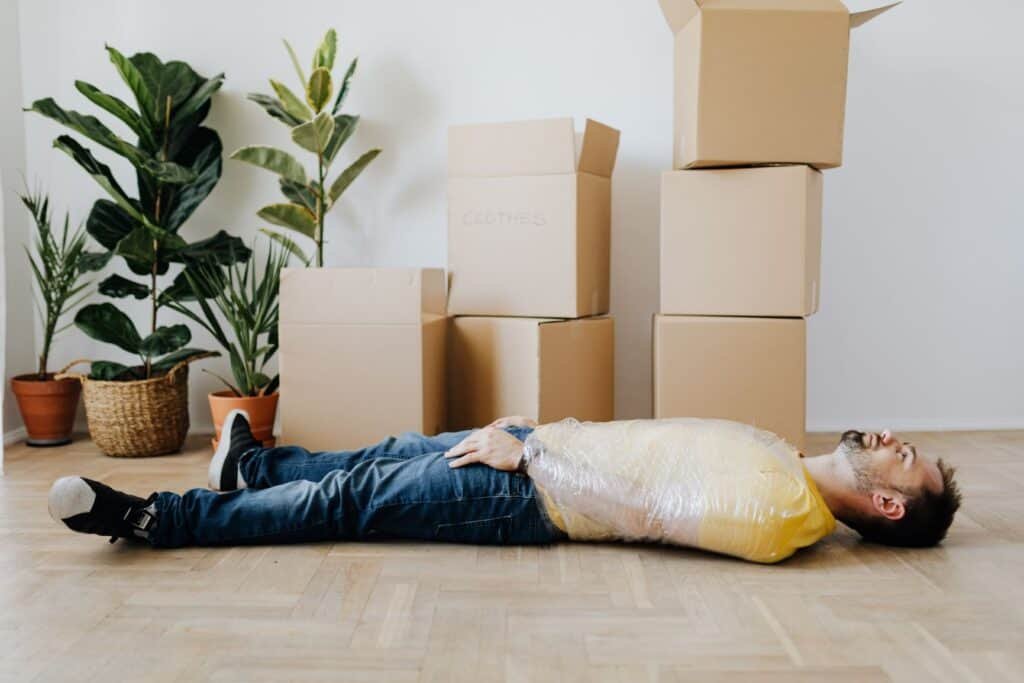Is Sleeping On The Floor Good For Your Back?
For most of us who are used to living in the Western world, sleeping time means sleeping on a comfortable mattress with duvets, blankets and an assortment of pillows (and teddy bears, for some). Most of us would not consider sleeping on a cold, hard floor a good night’s rest. Yet, sleeping on a hard floor is considered normal in many cultures worldwide. Sleeping on the floor has many potential benefits, which we will explore in the article below.
Why sleep on the floor
While mattresses are one of the most common items we use to get a good night’s sleep in this day and age, sleeping on the floor harks back to our primal human instincts. As a species, humans have been sleeping on piles of straw, grass, and all kinds of naturally harvested soft bedding materials and sleeping on the hard floor itself. It’s safe to say that this natural way of sleeping has changed throughout the millennia as bedding and mattress technology become more prevalent in Western and Eastern cultures.
But if we look back into the past and think about how our human ancestors rested their weary bodies at night, one can’t help but ask, “What is the best way for a human to sleep?”. So let’s look at some of the purported benefits of sleeping like our ancestors used to.
Is sleeping on the floor good for your back
Although scientific research involving the benefits of sleeping on the floor is inconclusive at best, there is plenty of anecdotal evidence to prove that sleeping on the floor gives a list of benefits to the body. Some of the most common uses include reducing back pain symptoms, which leads to an improved posture while standing up and working through the day. This eventually promotes a good night’s sleep at bedtime, which is critical to a healthy life.
How is sleeping on the floor beneficial for your back
For starters, skipping the mattress and opting for a hard surface helps the spine align, strengthen and straighten the neck and the back because it does not curve as much as when lying down on a soft surface like a mattress.
Side effects of sleeping on the floor
As good as it is for your spine to sleep on the floor, there are some side effects. One common complaint about sleeping on the floor is the discomfort sufferers face from joint pain or long-term health issues such as Arthritis.
Because there is less cushioning for specific pressure points in the body when sleeping without a mattress, this causes pain and, in some cases – may even worsen the symptoms of back pain rather than alleviating it. Another side effect to note is the risk of reduced blood circulation around the zones of the body where contact is made with the floor. In addition, the increased pressure due to the individual’s body weight may limit the blood flow to these zones, ultimately resulting in numbness and discomfort.
Considerations for sleeping on the floor
If you plan to sleep on the floor for the first time, it is worth preparing as much as possible for your new bedtime routine to maximize the benefits and minimize any discomfort. Some of the things you can do include:
- Experiment with thin layers of bedding first, such as light cushions, mattresses or pads on pressure points where you feel discomfort while lying on the floor. A thin yoga mat or a foldable mattress is an excellent item for an experimental bedding layer.
- Try to ensure that your sleeping area is clean of dust and debris that may cause you to develop allergies as you sleep. Also, clear out your sleeping area from clutter to reduce any risk of accidents or injuries.
- Acclimatize your body to the pressure of sleeping on the floor. Your body is used to the soft comfort of a mattress, so don’t expect to have a comfortable night’s rest on day one. Try taking short naps before committing to sleeping a whole night on the floor.
Who should not sleep on the floor?
Older people who suffer from low bone density and have less body tissue due to old age should refrain from sleeping on the floor because of the increased risk of discomfort and fractures, should an injury occur.
People with Arthritis and those with limited mobility issues should always sleep on a bed and mattress instead of the floor because of the difficulty they may face when lying down and getting back up. While it is generally safe for most pregnant women to sleep on the floor, it may become an issue if getting down on the floor and standing back up becomes uncomfortable and causes joint pain and other associated ailments. If you are pregnant and start feeling those symptoms when you sleep on the floor, it’s best to avoid floor sleeping altogether and sleep on a bed instead.
Read also: What Causes Restless Sleep?
While sleeping on the floor isn’t a revolutionary lifestyle choice, most people, especially in the West, have yet to experience the benefits of making do without a mattress and embracing the hard floor for a better night’s sleep. Those who suffer from back pain have said that sleeping in such a way helps to reduce said pain and improves posture and overall quality of life. However, taking anecdotal (not scientific) evidence with a pinch of salt is wise. What is suitable for one may not necessarily be best for another – so if you’re new to floor sleeping, experiment with how it can work best for you before you make your conclusions. Those with underlying conditions or mobility issues should consult their healthcare provider before ditching the bed and sleeping on the floor regularly.



